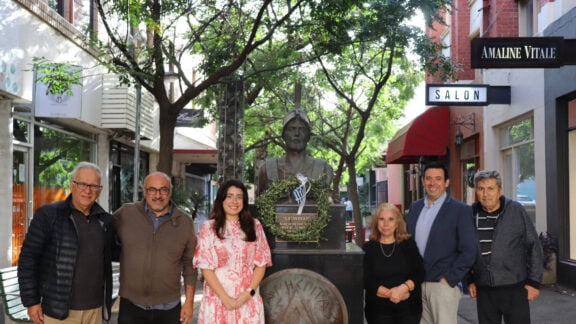In a recent op-ed in the New York Times, Bret Stephens joined the chorus of voices lamenting the politicization of universities and claimed that instead of making current events and politics the work of the academy, we should return to the ways of Socratic inquiry as enshrined in Plato’s Apology. While Stephens is focused on U.S. universities, similar arguments have been echoing in Australia as many question the recent protests by pro-Palestinian students, occupying university grownds.
The surprise in store for Stephens and others is that Socrates might just be an important entry in the battle for the future of higher education, but just not in the way he thinks.
Plato–and Greek figures in general–make frequent appearances in the culture wars as champions of the ‘truth and beauty’ of the ‘western intellectual tradition’. But the Socrates of Plato’s Apology is an essentially political figure. In the historical tradition, Socrates was brought to trial for corrupting the youth by introducing new religious practices into the state and teaching them “how to make the weak argument stronger”. In a radical democracy like ancient Athens, there was nothing more political than the public worship of the gods and training in the rhetorical skills necessary to participate in shared governance and understand the power of language wielded by others.
However, Socrates’ political activity wasn’t restricted to the charges of his trial: anyone who has actually read Plato’s Apology will remember that Socrates’ most incredible claim–that the Delphic oracle had declared him the wisest man in the world–was supported by the story Socrates tells (and offers as a cause of his prosecutors’ enmity).

Incredulous at the divine claim, Socrates proceeded to go to the wisest men of his days: expert craftsmen, politicians, poets, and more, in order to prove that they were wiser than he. Yet, in each case, Socrates discovered that while they were expert in their own domains, they made the error of imagining that their expertise translated into other fields of knowledge as well. For Socrates, this category error indicated that he was at least a little wiser than these men, because he could admit what he didn’t know.
Today the problem of public figures with narrow expertise–or some financial success–opining on everything from infectious disease to military conflicts will surprise no one. Socrates used the famous metaphor of the gadfly “stinging the sluggish horse of the state of Athens into action” to characterise his service to his people. His interminable questioning, his striving for the truth, and his exposure of others’ hypocrisy had to be unquestionably political, or else, why would he be tried, convicted, and sentenced to death by the state?
It is nearly impossible to open the opinion section of any publication in the United States, Australia, or Great Britain – the Anglosphere – without encountering some complaints about the politicisation of education that fails to articulate what Universities should be for if not for the pursuit of knowledge, wisdom, and truth.
In recent years, the toxic combination of public opinion and partisan politics has targeted scholars and programs that teach gender studies, critical race studies, sociology, and historical frameworks like post-colonial theory.
Each of these disciplines have been on trial because–like Socrates–they call the entrenched power of our culture into question. They ask how culture creates categories of gender and falsely essentialises biology; they ask us to consider the historical and lingering effects of slavery and racism on modern wealth; they demand we consider a system of penal ‘justice’ and imprisonment that perpetuates our ancient crimes; and they force us to at least acknowledge the impact that European colonialism has on inequality and violence today.
The irony of these disciplines facing a kind of symbolic hemlock–delivered by financial cuts and op-ed punditry–is lost on many who invoke Socrates as one of those wonderful founders of western culture. But the truth as I see it is that Socrates offers the most important model left for the future of academic work. Universities need to preserve and transmit knowledge; we should be engines of economic growth and change; and we should strive to create a culture where people acknowledge what they don’t know and seek a greater truth together.
Plato’s Socrates made people uncomfortable. As institutions that embrace the search for all kinds of knowledge from the perspective of every person who joins their communities, Universities should be loci of discomfort: they must help us reconsider the history of our world and to question the basic assumptions that underlie it. This was part of the core mission of the founding of my own institution–Brandeis University–whose motto emmet translates as “truth even unto its innermost parts”.
Like Socrates and the people of Athens, we cannot always be assured of great discoveries or getting others to accept our point of view. But by dedicating ourselves to an honest and relentless inquiry, we get one step closer to wisdom in accepting all of those things we do not know.
Joel Christensen is Professor and Senior Associate Dean for Faculty Affairs at Brandeis University. He has published extensively and some of his work include Homer’s Thebes (2019) and A Commentary on the Homeric Battle of Frogs and Mice (2018). In 2020, he published The Many-Minded Man: the Odyssey, Psychology, and the Therapy of Epic with Cornell University Press.








